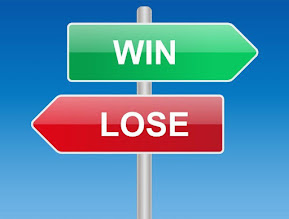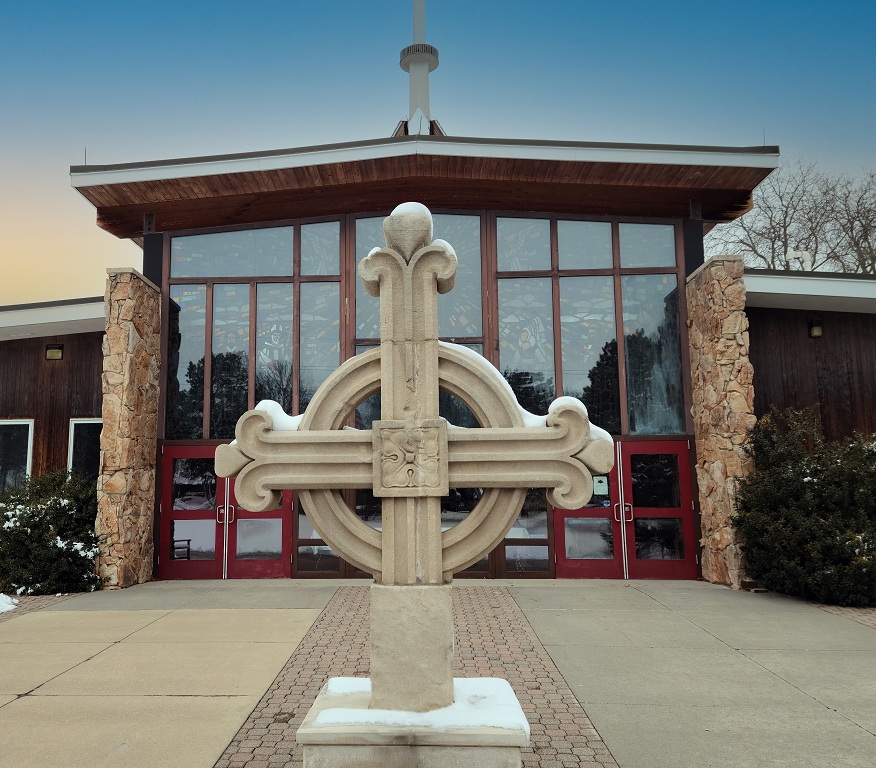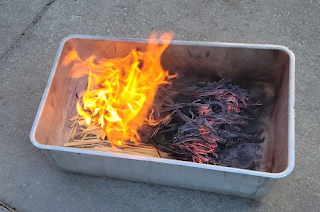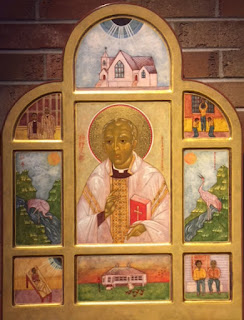#blessed, #woe
Blessed are you who are poor, for yours is the kingdom of God (Luke 6:20).
This is Super Bowl weekend…anybody join a betting pool on who’s going to win, Cincinnati or Los Angeles? This competition wouldn’t really be very interesting, would it, if there weren’t a winner and a loser? The Super Bowl is, of course, a zero-sum situation: whatever is gained by one side is lost by the other; one team’s success is possible only with the other team’s loss. One of the important underlying themes in today’s Gospel, I think, is a reminder that our lives as disciples in the grace-filled Kingdom of God are not part of a zero-sum game.
As you were just listening to the deacon read the Gospel, you might have been thinking, “Wait a minute…these Beatitudes, they don’t sound quite like the ones I remember! What about the merciful? What happened to the meek inheriting the earth?” Well, as you know, the four different Gospel writers tell their stories of Jesus to four different audiences, and from different perspectives. The Beatitudes in Matthew compared with the Beatitudes in Luke are one of those places where that is obvious. Matthew was writing to Jewish listeners, and he relates a time when Jesus was on a mountain, like Moses with the tablets on Mt. Sinai, and he preached his “Sermon on the Mount,” showing his continuity with Moses and the Prophets and offering new insights into following God’s laws more faithfully.
Luke, in contrast, is writing to a comparatively more affluent, mostly Gentile, flock—say, to people more like us. Luke today tells of a time when Jesus gave his “Sermon on the Plain,” to a crowd of people from many different places who had gathered hear him and be healed by him. In general, Luke’s Gospel is fundamentally concerned, throughout, with addressing the ethical and social issues that arise for God’s people who are living in this “here-now-in-part-but-not-yet-fully” time of God’s kingdom come on earth. (The Gospel of Luke, you’ll remember, is actually part one of the author’s two-part work: Part one, Luke, tells of Jesus’ life, death, and resurrection, and part two, Acts—tells the stories of Jesus’ disciples after Pentecost as the church grows out from its Jewish roots and spreads throughout the Roman Empire.)
Luke’s Beatitudes are harder for us to listen to, and they include only four “blesseds,” instead of Matthew’s nine. Matthew’s list is a little fuzzy, and easier for us to relate to comfortably—“Blessed are the poor in spirit…Blessed are those who hunger and thirst for righteousness…” That sounds reasonable…that sounds like me…In Luke, however, Jesus is preaching comfort to the afflicted and affliction to the comfortable…There aren’t just four “blessed;” there are also four “woes.” And Jesus is not preaching blessings and woes to some general, removed “those who,” Jesus is preaching directly to his audience, and directly to us! In Luke Jesus says “blessed are YOU…woe to YOU—Second person plural. Luke’s Jesus has his pointing finger out! And Jesus is talking about concrete, daily stuff—“Blessed are you all who are poor…you all who are hungry…you all who are weeping now…Woe to you all who are rich…you all who are full…you all who are laughing now.”
From the beginning of Luke’s Gospel to the end, Luke proclaims the message that the kingdom of God is topsy-turvy compared to the kingdoms of the world, and Luke demands concrete and sacrificial ways of living for all disciples of Jesus. At the start, in chapter 1, Mary’s Magnificat echoes in today’s reading: God has scattered the proud in their conceit, God has brought down the powerful, God has filled the hungry and sent the rich away empty.” We heard in chapter four two weeks ago when Jesus read in the synagogue from the scroll of Isaiah, “The Spirit of the Lord is upon me, because he has anointed me to bring good news to the poor.” It’s in Luke that Jesus forgives the sinful, weeping woman who bathes his feet with her tears. Luke’s Jesus tells us the parable of the rich fool who built larger barns to store his over-abundant harvest so he could “relax, eat, drink, and be merry,” only to die that night—a warning to all those “who store up treasures for themselves but are not rich toward God.” Poverty, weeping, and hunger—and their opposites—fill the Gospel of Luke.
In chapter 16 Luke’s Jesus gives us the parable of the rich man and the poor man Lazarus who lay at his doorstep each day. When they died Lazarus was carried by the angels to heaven, while the rich man was tormented in Hades. In chapter 18, after the rich young ruler asked Jesus how to inherit eternal life and turned away in despair when Jesus said, “give all you have to the poor,” Jesus tells his disciples, “How hard it is for those who have wealth to enter the kingdom of God—it is easier for a camel to go through the eye of a needle than for someone who is rich to enter the kingdom of God.” In chapter 21, Jesus says the poor widow’s two small pennies are more valuable than all the offerings of the rich.
What are we to make of all this? Is God like some divine Robin Hood, a universal referee who will step in and just reverse the sides in our zero-sum game of life, simply handing out blessings to the poor and woes to the rich, throwing the game for the opposite team? The New Interpreter’s Bible commentary answers this way: “Because we are not poor, this beatitude either mystifies us or leaves us feeling guilt rather than [blessing]. Like the rich young ruler, we hear the Lord's word and go away sorrowful because our possessions are many. Our pride and our ability to provide for ourselves have blocked the channels of blessing…God has a preferential love for the poor not because they are necessarily better than others, morally or religiously, but simply because they are poor and [have lives] contrary to God's gift of abundance.”
Those of us who are poor, hungry, weeping, reviled…are living in the tragic gap between what is and what ought to be, the tragic gap between God’s original good creation and the fallen and sinful world we have made, the tragic gap between God’s intended fullness of life for everyone and our zero-sum game of winners and losers.
Jesus our Savior came to tell us we’re playing the wrong game. Jesus the Son of God came to teach us that the Kingdom of God is not a zero-sum kingdom; abundant life is not a win-lose competition. With God’s gift of free grace, everybody can have a winning season—God’s kingdom is a banquet where there is enough for all. In chapter 14, when Jesus is dining with a rich Pharisee, the Pharisee says to Jesus, “Blessed is everyone who will feast in the kingdom of God!” And Jesus replies to him, “But…but the kingdom of God is like a great banquet. When the banquet’s host told those who were invited that all was ready, they didn’t show up! One who was rich said he had just bought a field and had to go see it; one who was full said he had to go check on his five new oxen; one who was laughing said he had just gotten married. None of them came, and so the host said, ‘Go out quickly to the streets and alleys of the city, and bring in the poor, the crippled, the blind, and the lame.’”
Jesus’ mission was especially to the poor and the outcast, because they are the ones who welcomed him into their hearts and into their lives. They were the ones most willing to give all and follow him. They were the ones who had no excuses for not showing up. They were the ones who were not too busy, or too distracted, or too proud.
My friends, the Gospel of Luke is brilliantly written to hammer home this theme over and over again, and if you search your hearts you know it to be true for yourself: it is when we are at our lowest that we are most open to God. Blessed are we when we are poor, because then we clearly see that all we ever have is a gift from God. Blessed are we when we are hungry, because then we see that to share a simple meal with others is to dine with God. Blessed are we when we weep, because then we understand Jesus’ solidarity with all suffering; we understand that only God is our comfort and our strength and our help and our hope.
My prayer this week is that we will remember that, while a zero-sum mindset might make for an exciting playoff season, God calls us to live not on that playing field. Even now, as citizens in the Kingdom of God, we are challenged to be disciples in Jesus’ sacred, on-going work of establishing abundant life for all, while we wait for his return.




Comments
Post a Comment